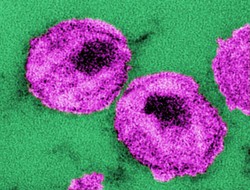The serostatus of sexual partners will determine, to some extent, which methods are effective in the prevention of human immunodeficiency virus (HIV) transmission. For example, serodiscordant partners cannot have a mutually monogamous relationship with an uninfected person as one partner already has the disease. On the other hand, seroconcordant couples are either both HIV-positive or HIV-negative [2].

Toward Control of HIV
Various behavioral approaches are available to control the spread of human immunodeficiency virus.
Mutually Monogamous Relationship with an Uninfected Partner
In seroconcordant relationships where both sexual partners are seronegative, a mutually monogamous relationship with an uninfected partner is a consideration. As long as neither person has sexual contact outside the relationship and health screening for other sexually transmitted diseases is negative for both of them, there is virtually no risk that either partner will acquire any infectious medical condition through sex [2].
In a mutually monogamous relationship with an uninfected partner, condoms are not necessary to prevent transmission as neither one of them has an infection that will spread through sex. However, the couple must still make a decision about birth control and whether they want to have children as unprotected sex will otherwise lead to pregnancy in many instances [2].
Those who have been in a mutually monogamous relationship with an uninfected partner must use condoms whenever they have sex with someone outside of that partnership. Moreover, both partners, from that point on, will have to use condoms with each other as the entry of a third party will pose a new risk of transmission [2].
Seropositive Partners
Seroconcordant couples in which both persons are HIV-positive require the use of condoms whenever they have sex with anyone. This is necessary because there are various strains of the virus, and condoms may protect against the spread of these strains to others regardless of their serostatus [2].
Serodiscordant partners must also use condoms when they have sex with each other or anyone else because there is always risk that one or both of them can have the infection and transmit it.
Whenever one or both sexual partners are HIV-positive and they do not want to have children, two methods of contraception are the recommendation. Condoms will be one of those methods as they also serve to prevent the spread of disease, and the patient and physician can determine what other approach will work best to prevent unintended pregnancy [1].
Conclusion
The serostatus of sexual partners will determine what limitations they must realize, and communication will significantly enhance disease prevention as well.
References
- Mayer, K. and Pizer, H. (2009). HIV Prevention. A Comprehensive Approach. Chapter Nine. San Diego: Academic Press.
- World Health Organization. (2012). Guidance on couples HIV testing and counselling including antiretroviral therapy for treatment and prevention in serodiscordant couples. Retrieved May 12, 2013.
- The photograph is a thin-section transmission electron micrograph of several human immunodeficiency virus particles. Reprinted with permission from Centers for Disease Control/Dr. A. Harrison/Dr. P. Feorino.
Disclaimer
The information contained in this article is for educational purposes only and should not be used for diagnosis or to guide treatment without the opinion of a health professional. Any reader who is concerned about his or her health should contact their physician for advice.
You might also like
How to React to and Help a Loved One with CancerDealing with cancer? Learn how to react, treat and care for a loved one when ...
Do You Have Your Own Cure For Cancer?Is it possible you might be completely unaware of the cancer cure, a natural ...



 The Reality of Aspirinon 05/24/2021
The Reality of Aspirinon 05/24/2021
 An Old Microbeon 03/31/2021
An Old Microbeon 03/31/2021
 Coronavirus and Mental Illnesson 02/14/2021
Coronavirus and Mental Illnesson 02/14/2021
 Acute Ischemic Strokeon 12/25/2020
Acute Ischemic Strokeon 12/25/2020


Comments
Cool! I had to look up Serodiscordant, seropositive, and seronegative, but those are pretty straightforward. I like that you included footnotes.